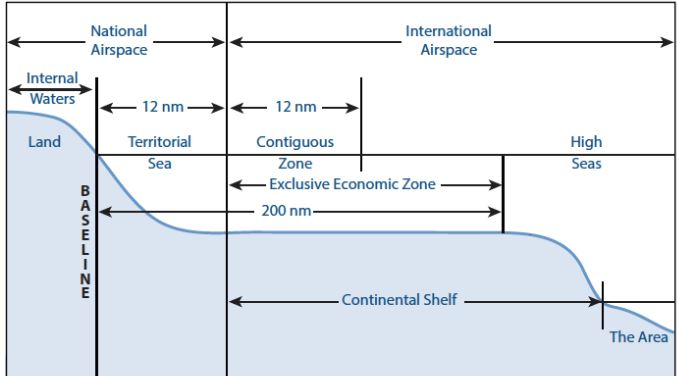Governance
Palk Bay Scheme and Marine Fisheries Bill
- 09 Oct 2021
- 4 min read
Why in News
The Union Government is considering increasing the unit cost of deep-sea fishing vessels from Rs 80 L to Rs 1.3 Cr under the Palk Bay scheme to make it more attractive to fisherfolk.
- Earlier, the Marine Fisheries Bill 2021 was tabled in the Parliament during the Monsoon session.
Key Points
- About Palk Bay Scheme:
- The Scheme, “Diversification Of Trawl Fishing Boats From Palk Straits Into Deep Sea Fishing Boats”, was launched in 2017 as a Centrally Sponsored Scheme.
- It was launched as part of the umbrella Blue Revolution Scheme.
- The Blue Revolution is part of the Government's efforts to promote fishing as an allied activity for farmers in order to double their incomes.
- It is a Tamil Nadu-specific scheme aimed at providing 2,000 vessels in three years to fishermen of the State and motivating them to abandon bottom trawling.
- Bottom trawling, an ecologically destructive practice, involves trawlers dragging weighted nets along the sea-floor, causing great depletion of aquatic resources.
- Another objective of the scheme is to “reduce fishing pressure” around the proximity of the International Maritime Boundary Line (IMBL) so that Tamil Nadu fishermen do not cross the IMBL and fish in Sri Lankan waters.
- The Funding pattern of the scheme is Centre 50%, State 20%, Institutional funding 10% and Beneficiary 20%.
- The Scheme is limited to vessels costing upto Rs. 80 Lakh.
- The scheme is not part of Pradhan Mantri Matsya Sampada Yojana.
- Marine Fisheries Bill:
- The Bill proposes to only grant licenses to vessels registered under the Merchant Shipping Act, 1958, to fish in the Exclusive Economic Zone (EEZ).
- It also proposes punishments for fishermen breaching the EEZ without a licence, not complying with Indian Coast Guard (ICG) orders, and obstructing ICG officials.
- The Bill prohibits fishing by foreign fishing vessels, thus nationalising our EEZ.
- It proposes social security for fish workers and calls for protection of life at sea during severe weather events.
Maritime Zones
- Under UNCLOS (United Nations Convention on the Law of the Sea - 1982), which India ratified in 1995, the sea and resources in the water and the seabed are classified into three zones - the Internal Waters (IW), the Territorial Sea (TS) and the Exclusive Economic Zone (EEZ).
- The IW is on the landward side of the baseline - it includes gulfs and small bays.
- The TS extends outwards to 12 nautical miles from the baseline - coastal nations enjoy sovereignty over airspace, sea, seabed and subsoil and all living and non-living resources therein.
- The EEZ extends outwards to 200 nautical miles from the baseline. Coastal nations have sovereign rights for exploration, exploiting, conserving and managing all the natural resources therein.
- Since fisheries is a state subject, fishing in the IW and TS come within the purview of the states concerned.
- Other activities in the TS and activities, including fishing beyond the TS up to the limit of the EEZ, are in the Union list.





